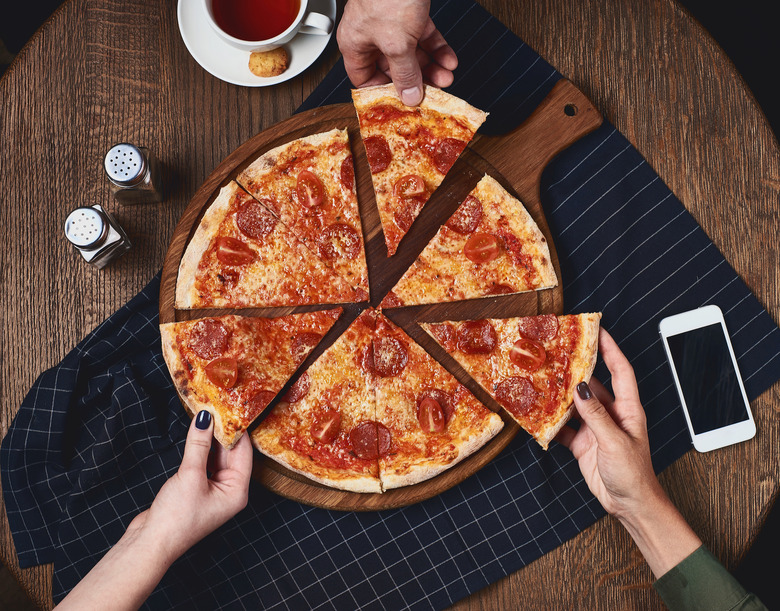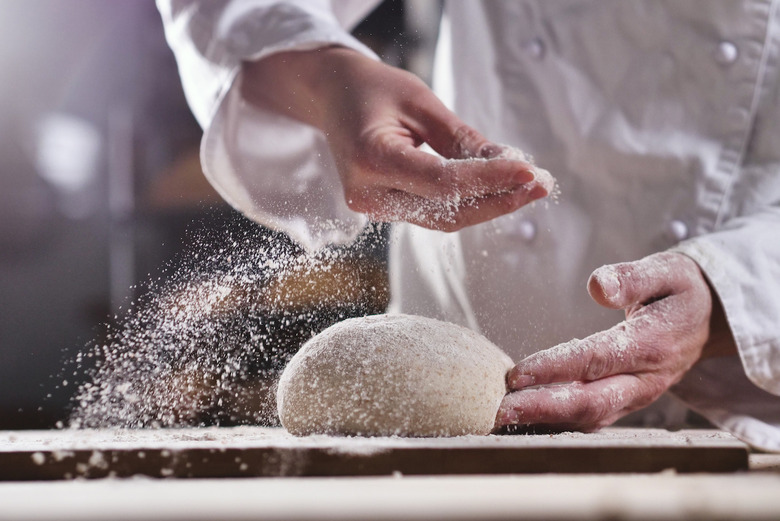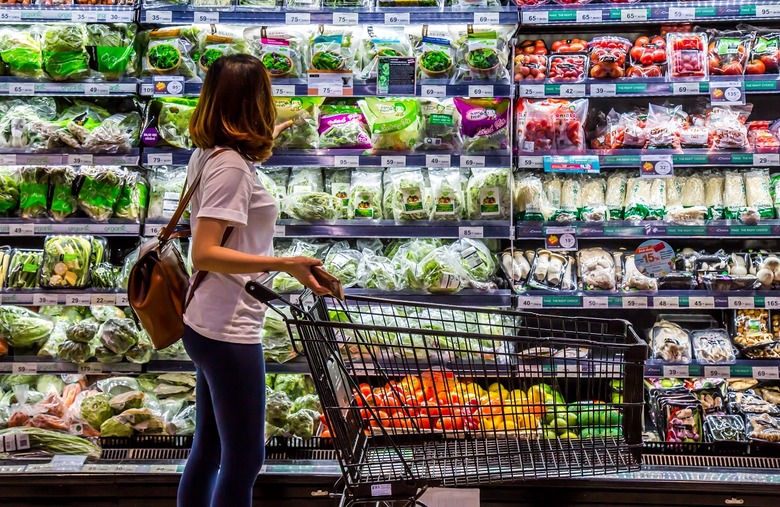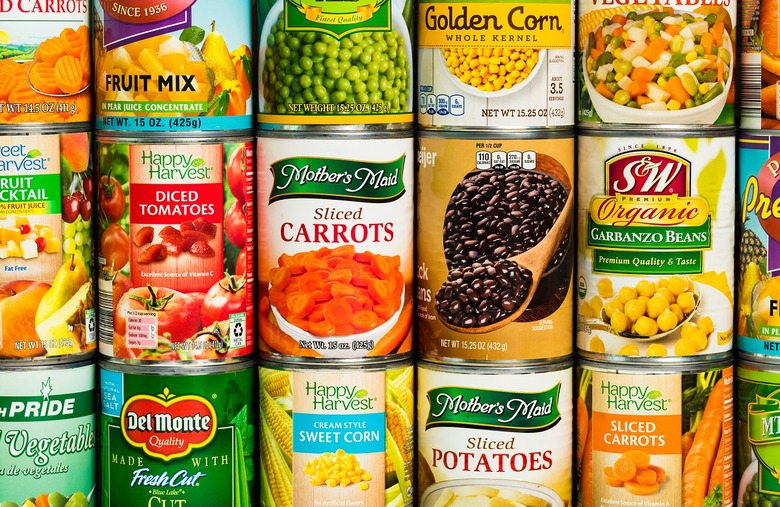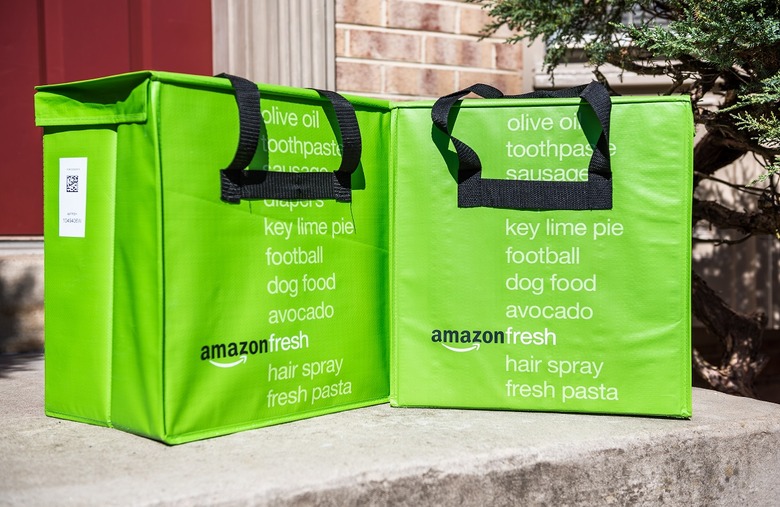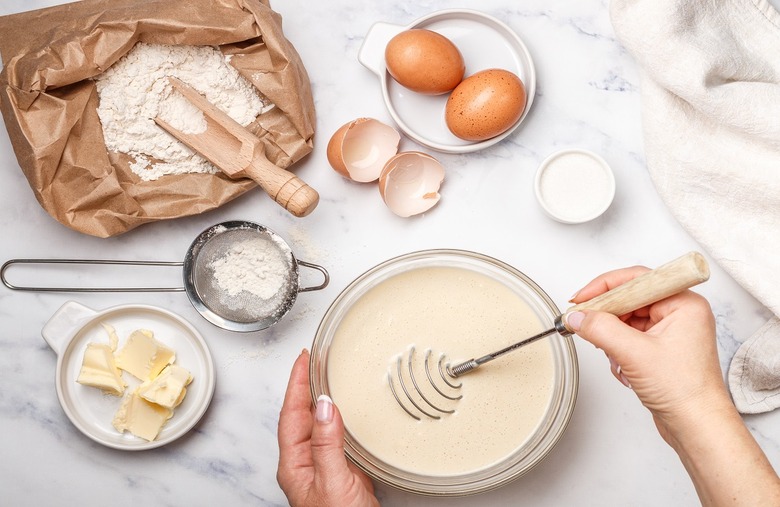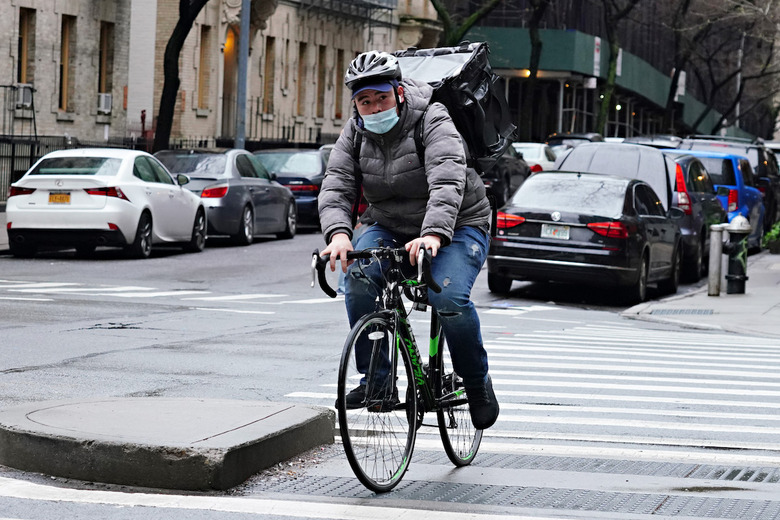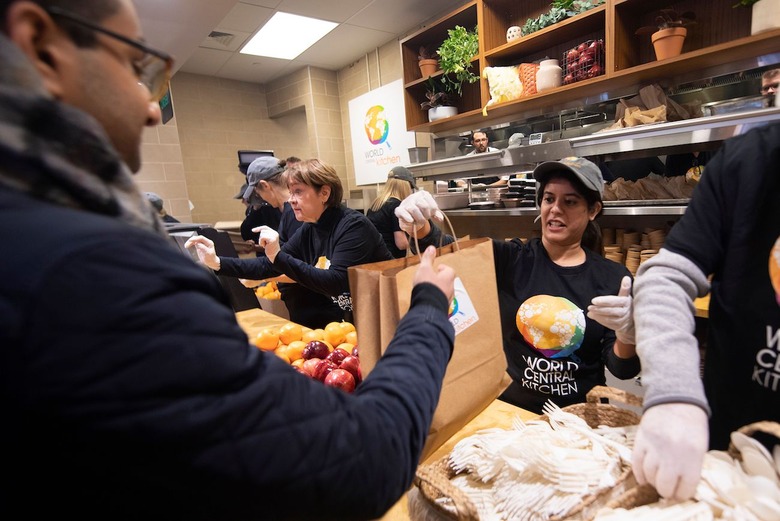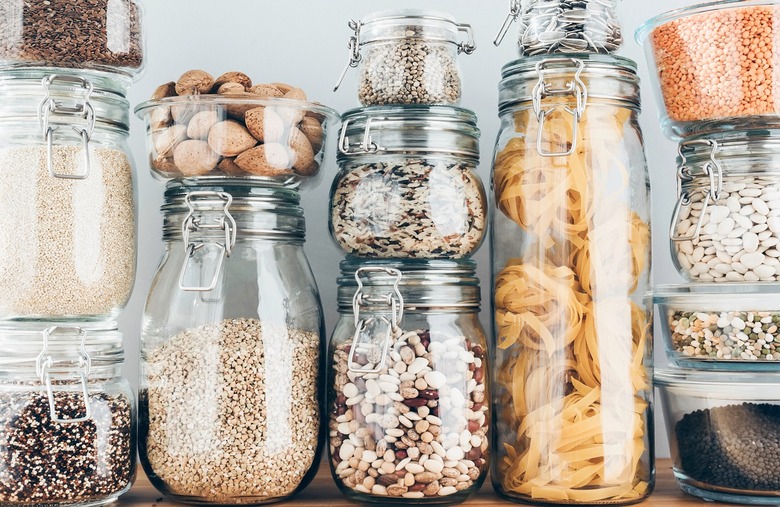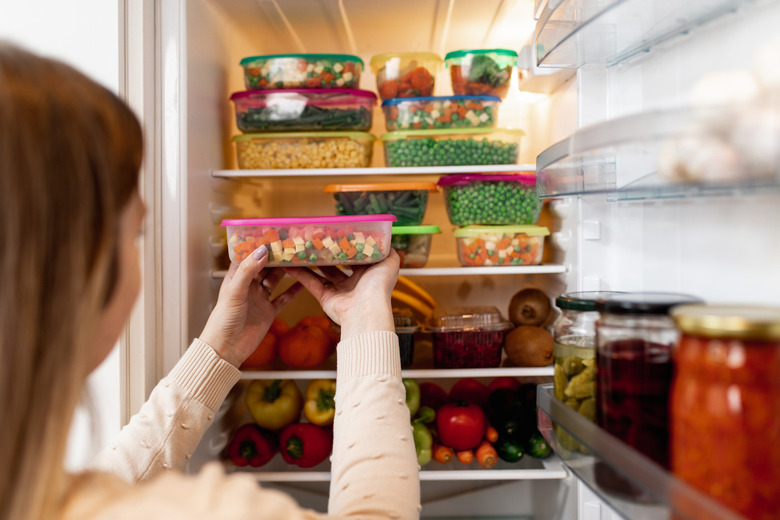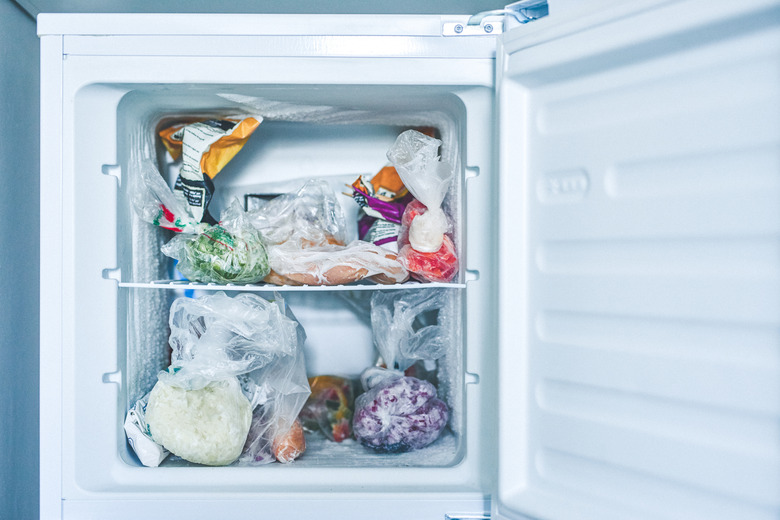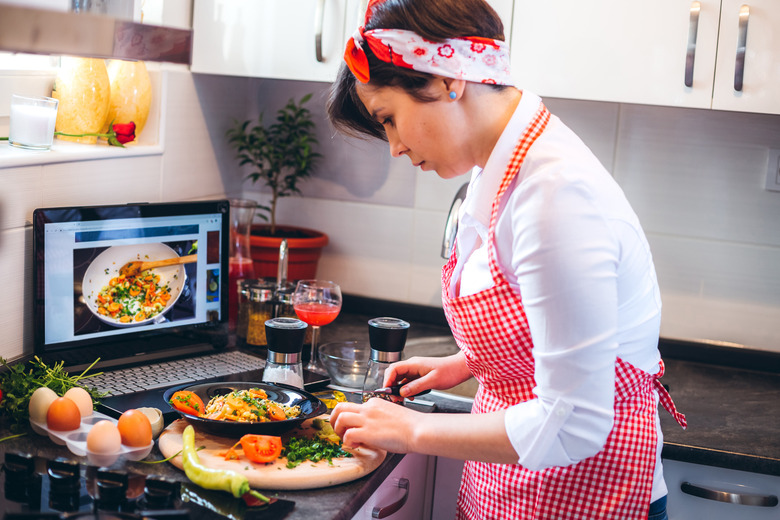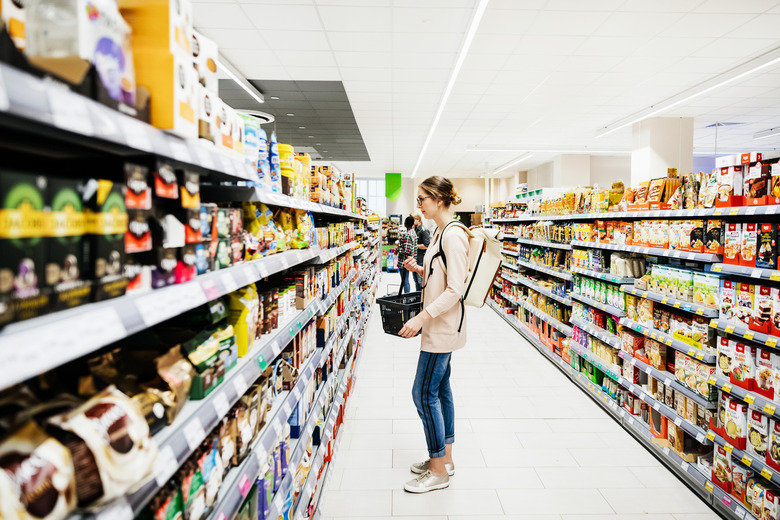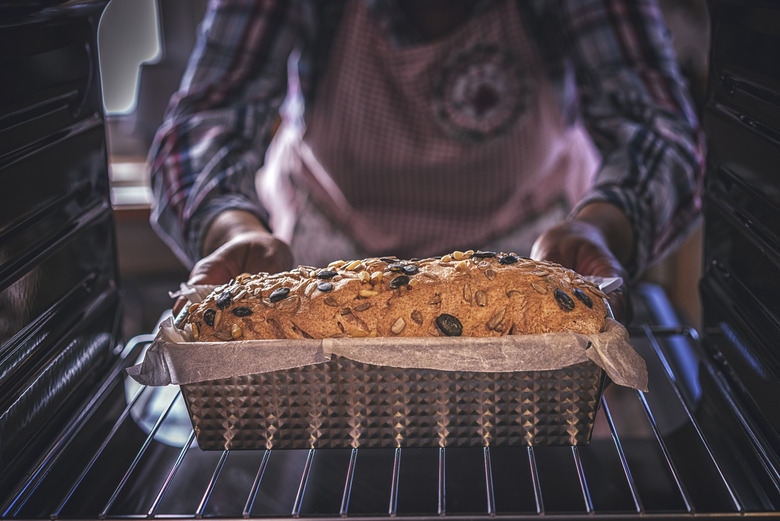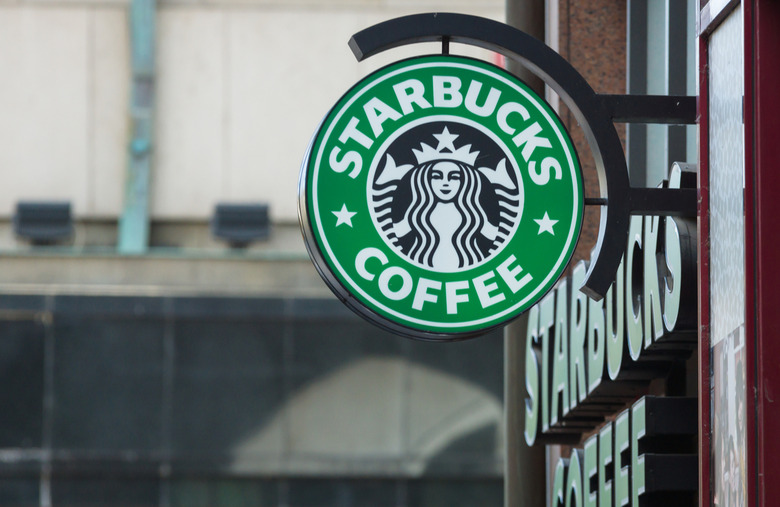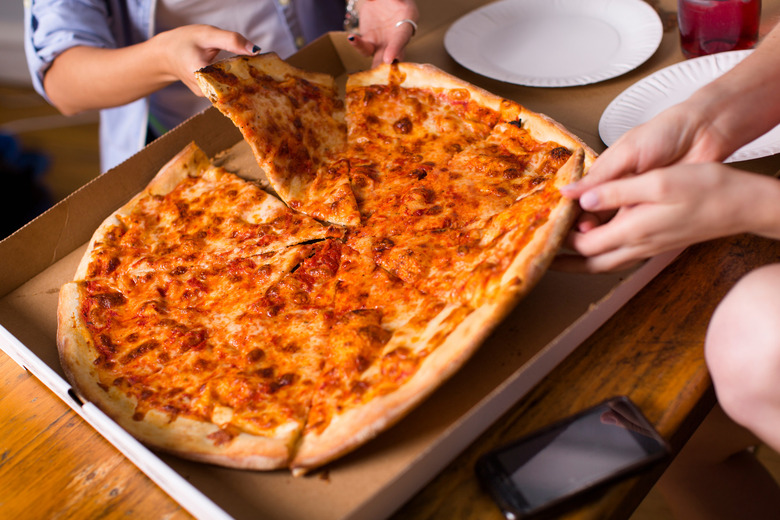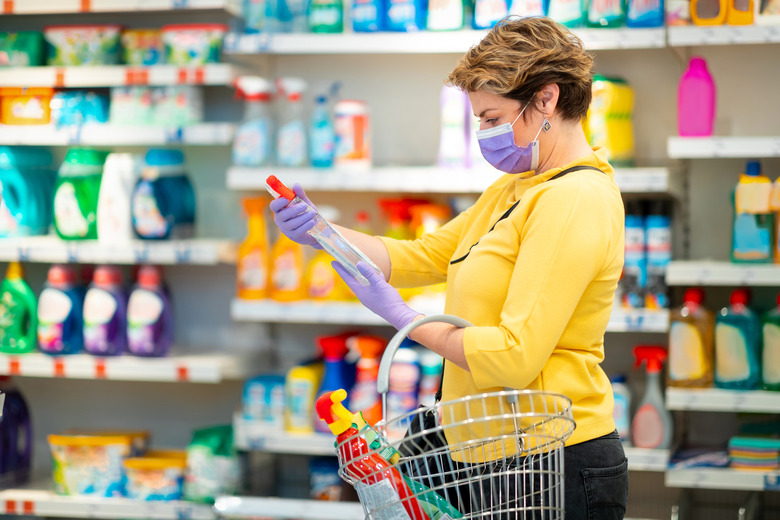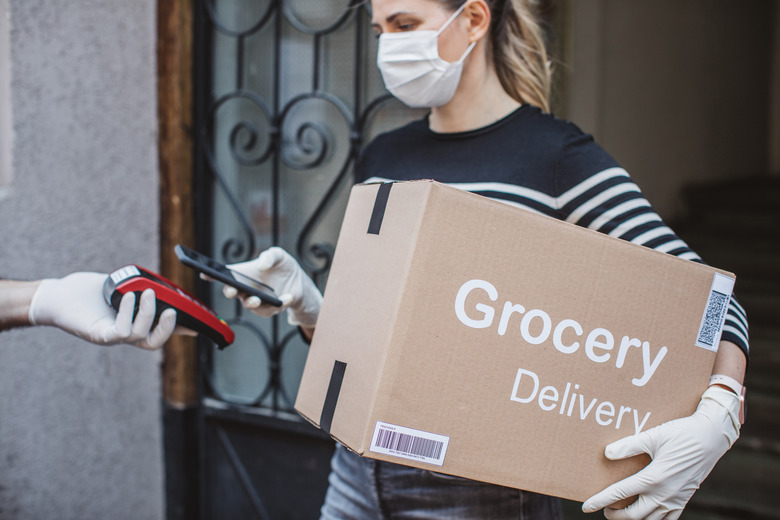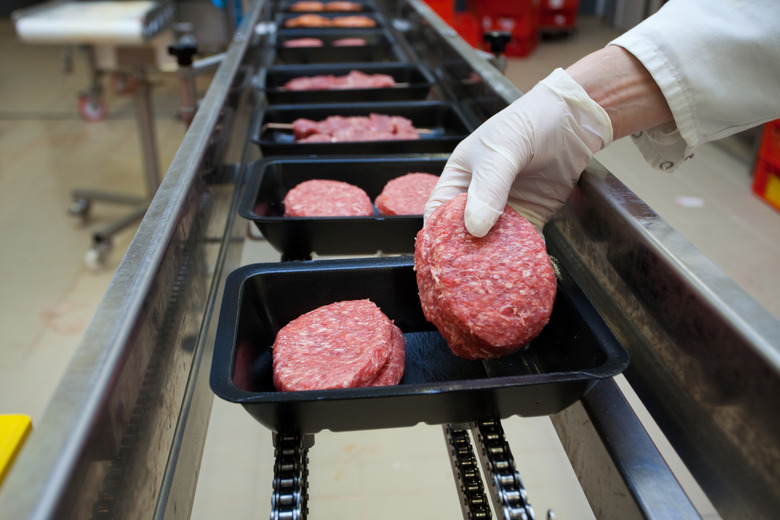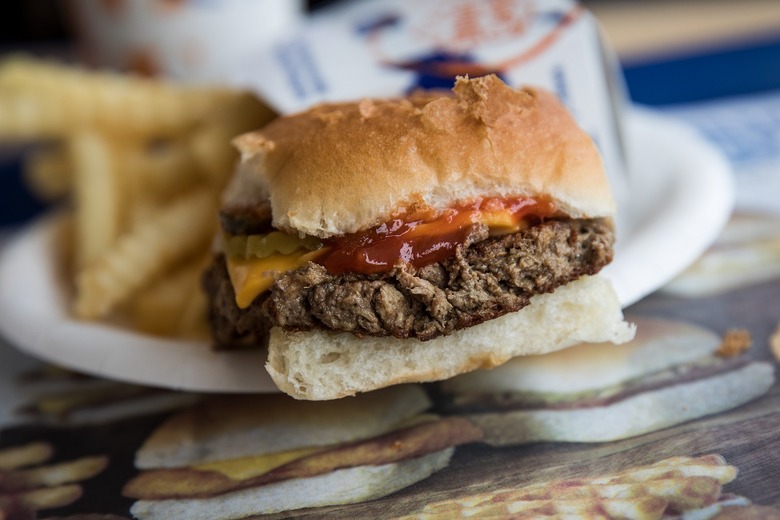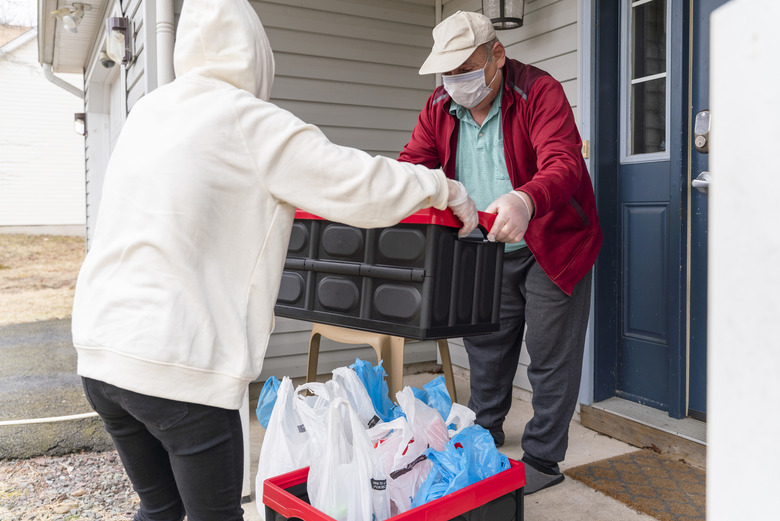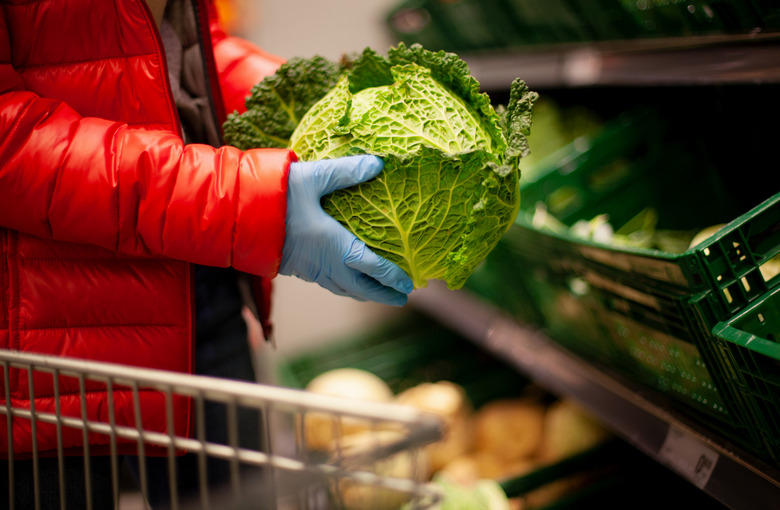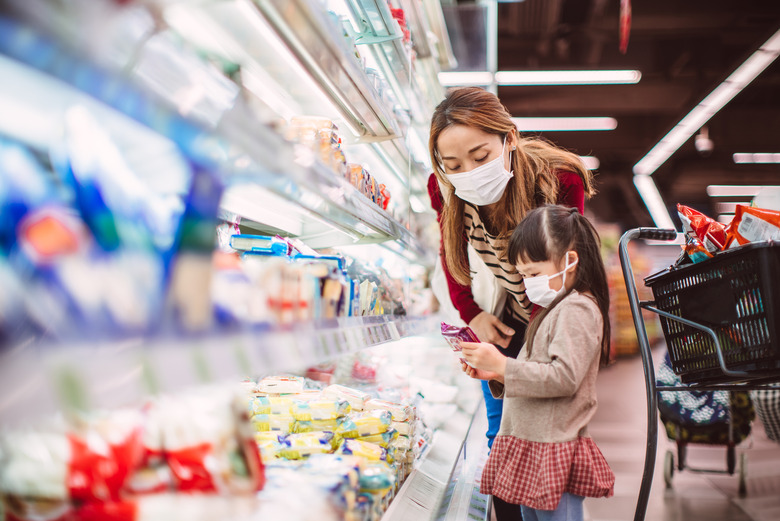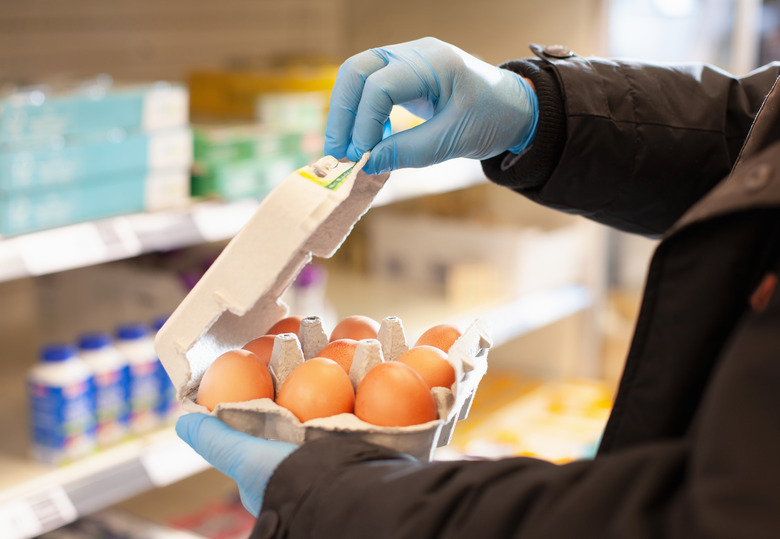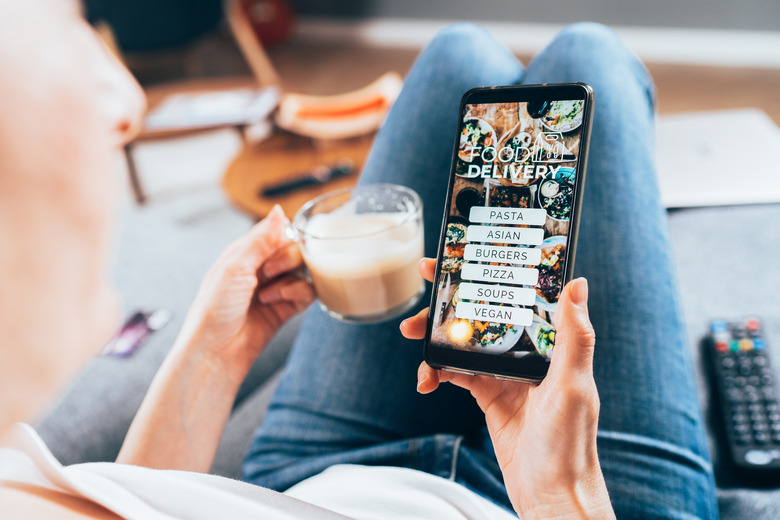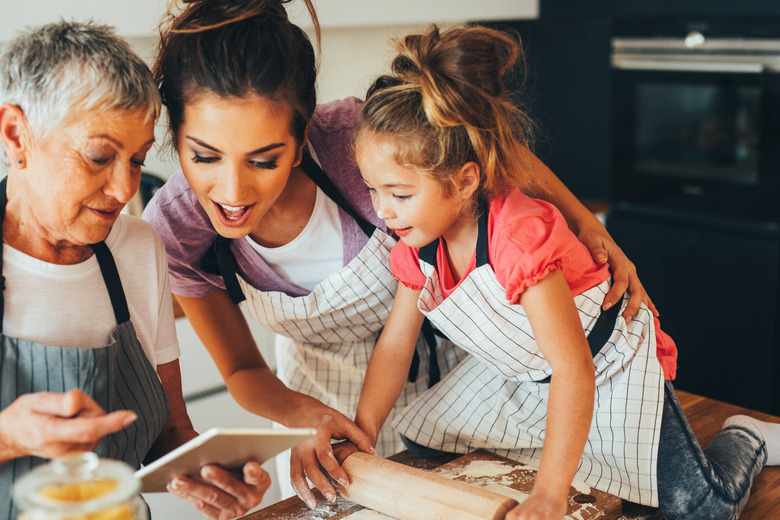Can Coronavirus Spread Through Food? And Other COVID-19 Food Questions Answered
Since coronavirus has started to spread in the U.S., many restaurants have closed their doors to dine-in customers, shifting to delivery and takeout only. Is it safe to eat a meal handled by cooks and delivery people? Is it safe to go to the grocery store? There are a lot of food questions surrounding COVID-19, so we checked in with the expert sources to determine the answers.
Can you get coronavirus from food?
Although health officials are still learning about the transmission of the coronavirus, there is no evidence that it can spread from an infected person through food they have handled or prepared, according to Harvard Health. That said, coronavirus has been detected in the stool of certain people, so the possibility that someone could transmit it through food after not thoroughly washing their hands can't be ruled out at this time. In the case of hot food, the coronavirus would likely be killed during the cooking process.
Can you contract the coronavirus from a food worker?
According to the FDA, there is no evidence that food or food packaging can transmit COVID-19, though it is possible that coronavirus can survive on surfaces or objects. Because the virus is spreading from person to person, the CDC recommends that if you're sick, stay home until you've recovered and are no longer a risk to others. Food workers should notify their supervisor and stay home if they're feeling ill.
Do food workers need to wear face masks?
The CDC does not recommend that healthy people wear face masks to protect themselves from respiratory diseases, including COVID-19. Face masks should only be worn by people who show symptoms of COVID-19, in addition to health workers and people who are taking care of infected individuals, and they must be worn properly as well. Some states do have their own masking rules, though, so check in on your local directives.
Should you go to the grocery store?
Social distancing is imperative to stop the spread of coronavirus. This means that, as much as possible, you need to limit contact with people outside your household. If you need to go out for food, medication or other necessities, try to stay at least 6 feet away from others. You should also avoid touching your face and mouth, and wash your hands thoroughly when you return.
If you go to the grocery store, what should you get?
Harvard Health suggests keeping a two-week to 30-day supply of nonperishable items on hand. These products are the same things you'd purchase to prepare for a snowstorm, power outage or other type of emergency.
This includes canned meats, fruits, vegetables and soups; frozen fruits, vegetables and meat; protein or fruit bars; dry cereal, oatmeal or granola; peanut butter or nuts; pasta, bread, rice and other grains; canned beans; chicken broth; jarred pasta sauce; oil for cooking; flour; sugar; crackers; coffee, tea, shelf-stable milk and canned juices; bottled water; canned or jarred baby food and formula; pet food; and supplies like laundry detergent, dish soap and household cleaner.
Can you still get groceries delivered?
Yes. Grocery delivery companies including InstaCart, Fresh Direct, Amazon Fresh and Shipt are still in service, as are the ones provided by grocery stores like Walmart and Kroger. Many also offer an option to have your order dropped off at the door. Available items and delivery windows may be limited based on demand, however.
What can you make using what you already have?
It may seem like your options are slim, but you can make pancakes, cajun chicken sausage and rice, black bean burgers, Rice Krispie treats and other easy dishes using ingredients that you already have.
What restaurants are offering free delivery?
Many chain restaurants and delivery services are offering patrons free delivery during the coronavirus outbreak. That includes Denny's, Chipotle, Outback Steakhouse and more. Third-party companies like Uber Eats and DoorDash are nixing the fee on orders from local restaurants too. To see the full list, click here.
What are celebrity chefs doing?
Jose Andres and his charity World Central Kitchen have transformed many of the chef's New York City and Washington D.C. restaurants into community kitchens with limited takeout menus. Other famous foodies including Tom Colicchio, Padma Lakshmi, Alton Brown and Michael Symon have taken to Twitter to weigh in on what to buy and how to cook it.
Which foods have the longest shelf life?
Pantry staples such as honey, salt, white sugar, white rice, whole grains, baking powder, dried corn, dried beans, snack cakes, instant oatmeal, potato flakes, dehydrated fruit, dried pasta and instant coffee all have surprisingly long shelf lives.
How can I make food last longer?
During coronavirus quarantine, it's ideal to minimize trips to the grocery store. But, you may be wondering how to preserve the food that's already in your fridge. First things first, make sure your fridge is the correct temperature. Then follow these rules to make lettuce, avocados and more common foods last longer.
Can I freeze all my food?
While it may seem obvious to make your food last longer by putting it in the freezer, there are actually some foods you should never freeze, like salad greens, melon and eggs.
What if I'm not used to cooking at home?
If you try your hand at making homemade meals during quarantine, but you may not be the best cook, don't worry. There are some amazing celebrity chefs offering online cooking classes during coronavirus quarantine.
Are there any foods I should avoid at the store?
Yes, there are some items you should avoid buying the next time you grocery shop. Pricing stickers that are labeled WIC are designated for individuals who rely on the Special Supplemental Nutrition Program for food and other items. When WIC items are purchased by other shoppers, people who depend on the program no longer have access to those items. Read more about the WIC program during the age of coronavirus here.
Can I make my own bread?
In case you haven't noticed, baking your own bread during coronavirus is a quarantine bucket list item. People everywhere have taken to social media to share their bread baking successes, and you can too.
What are big brands doing?
During coronavirus, companies like KFC, Starbucks and Chipotle have donated thousands to help frontline workers, children who have been affected by school closures and employees who have lost their jobs during this unprecedented time.
Can I send food to frontline workers?
Not only have food brands donated money and supplies, some have also made it possible for you to send food to frontline workers, too. Companies like Dunkin', Sweetgreen and Cracker Barrell give the option for you to place an order or donate money to feed a frontline worker.
How do I make the most of my grocery trip?
From trying to not touch your face to staying 6 feet away from everyone at all times, going to the grocery store can be overwhelming during the coronavirus pandemic. Next time you go to the supermarket, use these helpful tips for making the most of your grocery shopping trip.
How much should I tip frontline workers?
For many, the coronavirus pandemic means working from home. But, there are plenty of essential workers who are on the frontlines of this crisis. Here's a helpful guide for tipping essential workers, from Lyft drivers to Instacart employees.
Does CDC have guidelines for factories?
As part of the efforts to mitigate the spread of COVID-19, the CDC has offered specific guidelines for meat and poultry workers, including recommendations for social distancing, wearing face masks, putting up physical barriers and proper hand washing.
Are there some restaurant recipes I can make at home?
Although your favorite restaurants may have closed their doors, or maybe you're unable or unwilling to order delivery or takeout from them, you can still recreate some fast food recipes right at home.
What changes have grocery stores made in their operations?
Many grocery stores, such as Whole Foods, have started to open their doors early or reserve early pick up exclusively for seniors and other at-risk customers. Check with the top grocery stores in your state for any changes in hours of operation.
Should I wear gloves to the grocery store?
Although wearing gloves to the grocery store hasn't explicitly been advised by health officials, it's not a bad idea to do so in order to prevent the spread of germs.
Should I wear a mask to the grocery store?
Some states have required that people wear face coverings in public, although not all. Even if it's not required where you live, you should wear a face mask when grocery shopping and make sure to wear it properly.
Why do my eggs look different during coronavirus?
You may find that the eggs aisle at the grocery store looks different right now. Due to the relaxation of packaging guidelines by the FDA, stores are now temporarily allowed to sell unlabeled eggs.
What is the most-ordered delivery item?
With more people staying home in an effort to prevent further spread of the coronavirus, delivery and takeout have become alternatives to eating out. Each state has its own most popularly ordered delivery items.
What is the most-searched recipe?
Banana bread seems to be the most searched for recipe in America overall during the coronavirus, but each state has a different recipe topping search trends.
More from The Daily Meal:
How to Thaw Chicken and Other Defrosting Food Questions, Answered
Are Nonstick Pans Safe? And Other Kitchen Tool Questions, Answered
How to Use Leftover Rice, Vegetables, Pasta and More
Cleaning Products, Foods and More That You Should Always Buy Generic
